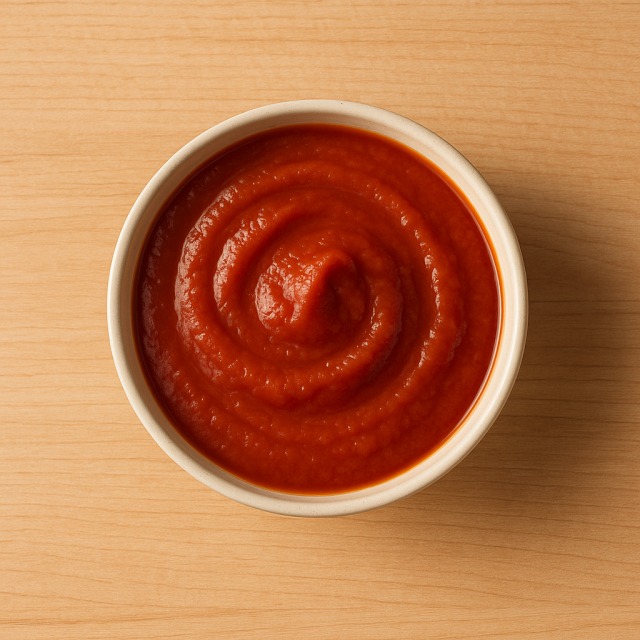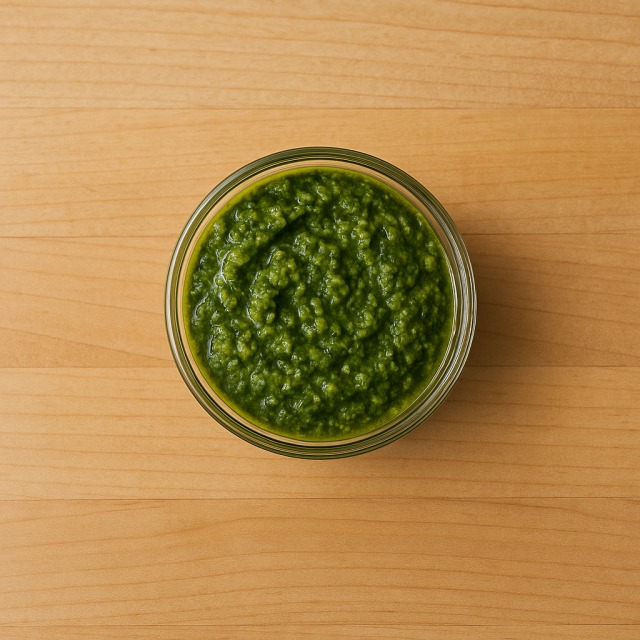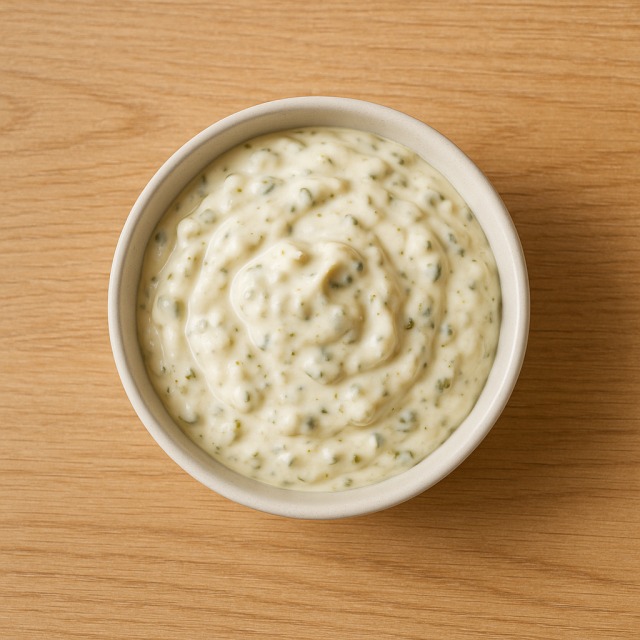Calorie Chart / Seasoning & Sauces / Tomato sauce
How Many Calories Are in Tomato sauce?
Calculation of the nutritional value & Recommended Dietary Intake of tomato sauce
For g and a calorie requirement of kcal
| Calories 11 kcal | Proteins 0.3 g | Lipids 0.6 g | Carbohydrates 1.1 g |
| 1% | 0% | 1% | 0% |
Health benefits of tomato sauce

Tomato sauce - 100g
Calories 75 kcal
Proteins 2 g
Lipids 4.2 g
Carbohydrates 7.2 g
With roughly mid-range calories, tomato sauce is considered a moderate-calorie condiment that can brighten dishes without dramatically raising their calorie tally. Because its natural ingredients are mainly simmered tomatoes, herbs, and a small amount of oil, it delivers flavor at a controlled calorie cost.
Tomato sauce supplies vitamin C for immune function, vitamin A precursors that support vision, and potassium to help regulate blood pressure. It is also rich in lycopene, the red pigment whose antioxidant properties are associated with cardiovascular protection. These benefits are obtained without an excessive calorie intake, making it attractive for people counting their daily calories.
Heating tomatoes actually increases lycopene bioavailability, so simmering them into sauce concentrates both flavor and nutrients while keeping calories moderate. Some studies even suggest (supposed) anti-inflammatory effects of regular tomato sauce consumption, again at a manageable calorie load.
Introduced to Europe from Mexico in the 16th century, tomato sauce quickly became a cornerstone of Mediterranean cuisine. Its global success is partly due to its ability to deliver taste, color, and preservation at moderate calories, long before refrigeration existed.
Tips for incorporating tomato sauce into a balanced diet
To keep calories under control while maximizing taste, use tomato sauce as a base for quick dishes: toss it with al dente pasta, fresh basil, and a drizzle of olive oil; the sauce coats the starch without adding excessive calories. For a lighter plate, spoon it over grilled zucchini or roasted eggplant instead of cheese-laden toppings, cutting overall calories while adding fiber.
Those looking for protein can simmer diced chicken breast in tomato sauce with herbs; the lean meat plus the moderate-calorie sauce offers a filling meal with balanced calories and ample protein. Pair the dish with a side of steamed broccoli to boost micronutrients without inflating calories.
For breakfast, spread a thin layer of tomato sauce on toasted wholemeal bread, top with a poached egg, and a pinch of pepper. The combination delivers savory satisfaction yet restrains early-day calories compared with butter-based spreads.
If you crave comfort food but monitor calories, replace creamy or cheese sauces with tomato sauce in lasagne, ratatouille, or shakshuka. Its acidity cuts richness, allowing you to enjoy generous portions while keeping total calories in check.
Frequently Asked Questions
- How many calories are in tomato sauce?
- Tomato sauce provides 75 kcal per 100 g.
- Is tomato sauce good for weight-loss diets?
- Yes. Because it offers strong flavor for relatively few calories, tomato sauce helps reduce the need for high-fat condiments, keeping daily calories lower.
- Does simmering tomato sauce change its calorie content?
- The water evaporates, so calories per spoonful may rise slightly, but the overall calories of the batch stay the same. Portion control is key.
- Which nutrients accompany the calories in tomato sauce?
- Along with its moderate calories, tomato sauce supplies vitamin C, provitamin A, potassium, and the antioxidant lycopene.
- How do tomato sauce calories compare with ketchup?
- Ketchup usually contains added sugar, so its calories per 100 g are notably higher than those of tomato sauce.
- Can I reduce calories by choosing homemade over industrial tomato sauce?
- Preparing it yourself lets you limit oil, salt, and sugar, often cutting calories by 10–30 % compared with some jarred versions.
Similar foods
Information provided by Calorie Menu may contain inaccuracies or errors. It cannot, under any circumstances, substitute medical advice or medication.










